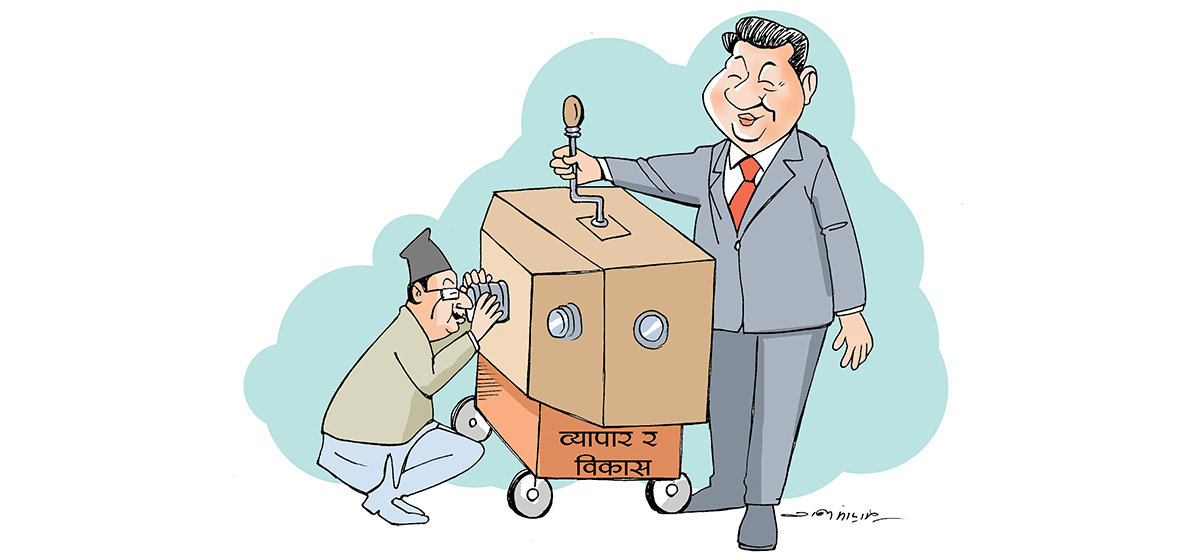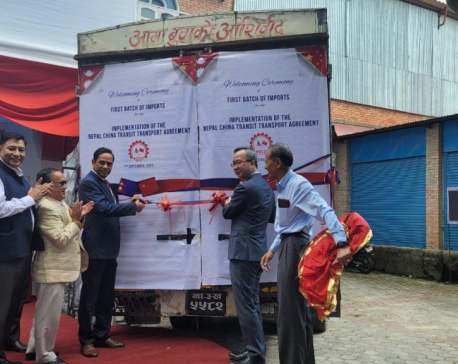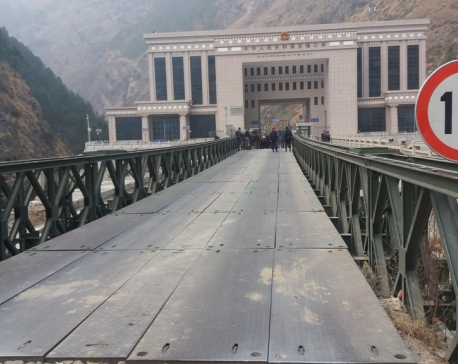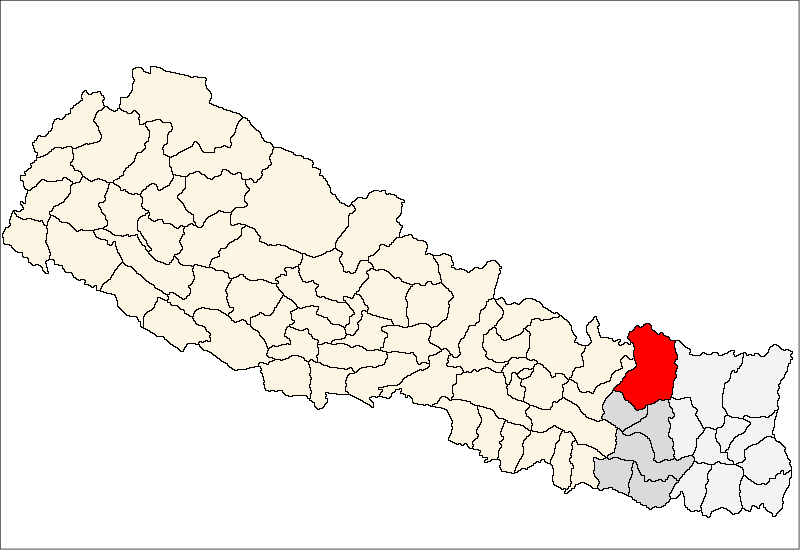
OR
# Nepal-China relations
Nepal’s trade deficit with China widens
Published On: September 23, 2023 07:41 PM NPT By: Dilip Paudel

Why does Nepal struggle to do business with its northern neighbor?
KATHMANDU, Sept 23: Nepal has not been able to benefit from trade with its northern neighbor China, which has the second largest economy in the world. Since China does not prioritize trade with Nepal, the trade deficit with China is deepening. Politically, even though China has given high priority to 'micro-management' in Nepal, Nepal has not been able to get any benefits in trade.
Although the two countries are expected to sign various agreements during the high-level visit of the Prime Minister of Nepal to China, it does not seem that Nepal will benefit much from it. A delegation led by Prime Minister Pushpa Kamal Dahal reached China on Saturday.
The last visit by a Nepali prime minister to China did not appear to yield concrete strategies for reducing the trade deficit by increasing exports. Observers suggest that Nepal may not have received significant benefits due to its relatively low priority in China's economic agenda. According to the Department of Customs, imports from China are about 150 times more than exports from Nepal. In the last fiscal year (FY) 2022/23, goods worth Rs 222 billion were imported from China, while goods worth Rs 1.76 billion were exported from Nepal. This shows the trade deficit gap between Nepal and China.
Imports have doubled in about a decade. In the FY 2013/14, the imports from China stood at Rs 79.72 billion. In that year, goods worth Rs 2.52 billion were exported from Nepal to China. Nine years later, the export decreased to Rs 1.76 billion in the FY 2022/23..
Experts in the commercial sector say that this trade imbalance with China is a matter of concern. Former Commerce Secretary Purushottam Ojha says that exports from Nepal to China have not increased due to China's non-tariff barriers. "It seems that a serious review should be done on how to reduce the trade imbalance with China," Ojha said, "The two sides should sit down and discuss to reduce the imbalance."
Nepal primarily imports electrical materials, clothing, food, fruits, vehicles, mobiles, laptops, machinery, and various other items from China. However, exports from Nepal to China, such as herbs, carpets, felt products, furniture, handmade paper, and Yarsagumba, remain minimal. Former secretary Ojha says that a Special Economic Zone (SEZ) should be created in the border area to increase exports to China. "SEZ should be made to produce herbs and other products in the areas connected with China," he said, adding, "Trade deficit should be reduced by increasing exports."
Chandra Ghimire, former secretary of the Ministry of Industry, Commerce and Supplies, said that because the Chinese side has tightened provisions such as standard certification and proof of origin of agricultural and industrial goods when exporting goods to China, Nepal has not been able to increase exports. "Many criteria must be met when sending goods to China," said former secretary Ghimire, "We have not even been able to mobilize trade diplomacy."
Although Nepal signed a transit agreement with China in April 2016, Nepal has not been able to yield significant benefits. Implementation of the Transport Agreement and Transport and Transit Protocol with China has stalled. Former Secretary Ghimire says that not being able to implement the transit agreement with China is Nepal’s weakness. "Nepal should have been able to use the easy and cheap transportation from China," Ghimire said, "Not being able to benefit from it is a weakness."
Nepal has no access to the sea without using Indian land. Nepal's access to the sea route through China was expected to boost trade but it did not materialize.
Traders say that it is difficult to bring goods through third countries when there is a problem in getting regular supply of goods from Tatopani and Rasuwagadhi, the two major ports with China. Officials of the Nepal Himalayan Cross Border Commerce Association say that it is difficult to import from third countries using Chinese ports. Most of the goods coming to Nepal now come from Kolkata port. Not only from third countries but even the goods coming from China have to be re-routed through India.
Nepal and China had agreed to boost trade through 6 points, namely Tatopani, Kerung, Kimathanka, Korala, Yari and Olangchungola. But the decision has not been implemented. Although Nepal has signed agreements with China regarding the Belt and Road Initiative (BRI), and other pacts related to transport, hydropower and connectivity, those agreements have not been implemented.
Even though the US-funded Millennium Challenge Corporation (MCC) was passed by the parliament and is in the implementation phase, the BRI proposed by China is yet to be implemented.
You May Like This

Nepal imports goods from third country through Chinese ports after seven years of transit agreement
KATHMANDU, Sept 9: Nepal has successfully imported goods from a third country through Chinese ports, marking a significant milestone seven... Read More...

Total exports growing, except to China
KATHMANDU, June 23: Though the total exports of Nepal has been on a rising trend, albeit slowly, the case is... Read More...

Nepal online trade: Decorating Nepal
Nepal Online Trade is a business initiative of Sajak Yonjan that sells décor materials imported from China, Hong Kong, and... Read More...




Just In
- NEA Provincial Office initiates contract termination process with six companies
- Nepal's ready-made garment exports soar to over 9 billion rupees
- Vote count update: UML candidate continues to maintain lead in Bajhang
- Govt to provide up to Rs 500,000 for building houses affected by natural calamities
- China announces implementation of free visa for Nepali citizens
- NEPSE gains 14.33 points, while daily turnover inclines to Rs 2.68 billion
- Tourists suffer after flight disruption due to adverse weather in Solukhumbu district
- Vote count update: NC maintains lead in Ilam-2













Leave A Comment